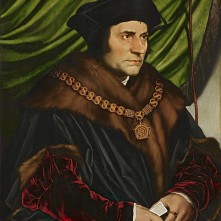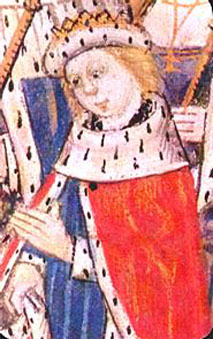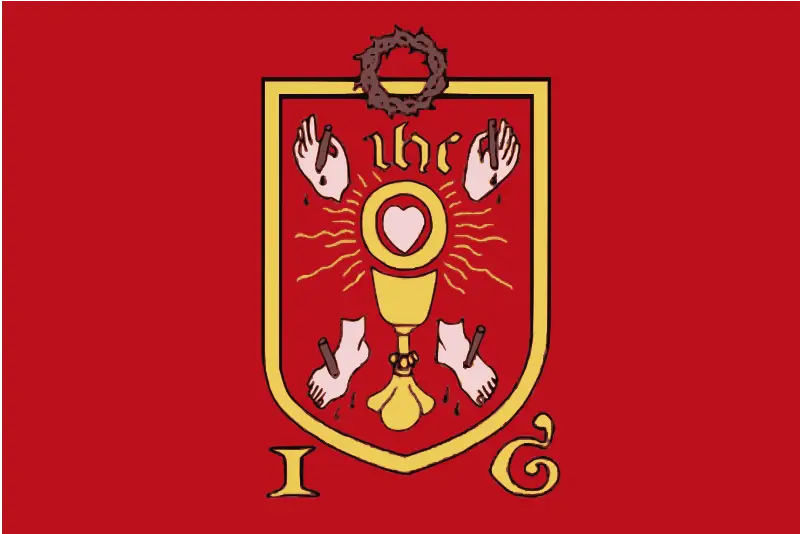20 October
1536 - Lord Darcy and Pontefract Castle surrendered to the rebels of the Pilgrimage of Grace.
1549 – Death of John Uvedale, administrator. Uvedale served Henry VIII as Secretary to the Duke of Richmond's Council in the North, Secretary to Queen Anne Boleyn (1533-1536), Commissioner in the Dissolution of the Monasteries and Paymaster to the forces in the East and Middle Marches. In Edward VI's reign, he was Under-Treasurer for the Scottish war.
1557 (20th or 21st) – Death of Mary Arundell, (other names Mary Radcliffe, Countess of Sussex and Mary Fitzalan, Countess of Arundel), at Bath Place, London. She was originally buried at St Clement Danes' Church, but now rests in the Fitzalan Chapel at Arundel Castle. Mary was the daughter of Sir John Arundell of Lanherne in Cornwall and was married twice, first to Robert Radcliffe, Earl of Sussex, and second to Henry Fitzalan, Earl of Arundel.
1573 – Death of Thomas Smith, colonial adventurer, at Comber in the Ards, co. Down, Ireland, after being shot by one of his Irish employees. Smith had been attempting to colonise that part of Ireland and had become unpopular with the locals.
1581 – Death of James Blount, 6th Baron Mountjoy, at Hooke in Dorset. Blount was made a Knight of the Bath at Mary I's coronation, served as a Justice of the Peace, and experimented with alchemy.
21 October
1449 – Birth of George, Duke of Clarence, son of Richard, Duke of York, and brother of Edward IV and Richard III, at Dublin. He was born in Ireland because his father was serving there as Lord Lieutenant of Ireland. Clarence was also the father of Margaret Pole, Countess of Salisbury.
1532 – Henry VIII left Anne Boleyn in Calais to spend four days with Francis I, “his beloved brother”, at the French court in Bolougne. He returned with Francis on the 25th October.
1536 - Lancaster Herald, on nearing Pontefract Castle, encountered a group of armed peasants. The peasants explained that they were armed “to prevent the ‘comontte’ and Church being destroyed; for, they said no man should bury, christen, wed, or have beasts unmarked without paying a tax and forfeiting the beast unmarked to the King’s use.” Rebel leader Robert Aske then met with Lancaster Herald at Pontefract Castle. Aske refused to let the Herald read out the proclamation which told of how the Lincolnshire rebels had submitted, and declared that he and his people were intent on staying true to their cause and would be marching on London. Lancaster Herald reiterated that he was required to read his proclamation to the people but Aske would not let him and instead offered him safe conduct out of the castle and town.
1542 – “The 21st day of October in the xxxiiij year of the reign of our Sovereign lord King Henry the viijth., the duke of Norfolk’s grace, lieutenant to the King’s Highness, removed and camped in the borders of Barwicke”. Records show that Norfolk and his men went on to burn and pillage a number of towns in the Scottish borderlands.
1554 – Death of John Dudley, 2nd Earl of Warwick and son of John Dudley, Duke of Northumberland, at Penshurst, the house of his brother-in-law Henry Sidney, in Kent. Dudley and his brothers, Robert and Henry, had just been released from the Tower of London after the fall of their father, brother Guildford and sister-in-law, Lady Jane Grey.
22 October
1521 – Death of Sir Edward Poynings, soldier, administrator and diplomat at his manor of Westenhanger in Kent. Poynings served Henry VII as Lord Deputy of Ireland and Henry VIII as an ambassador, Lord Warden of the Cinque Ports and Chancellor of the Order of the Garter,
1554 (22nd or 23rd) – Death of John Veysey (born John Harman), Bishop of Exeter, at Moor Hall, Sutton Coldfield, Warwickshire.
1577 – Death of Henry Parker, 11th Baron Morley and Roman Catholic exile, in Paris. Morley had fled abroad after refusing to subscribe to Elizabeth I's “Act of Uniformity” and after being implicated in the 1569 Rising of the North.
23 October
1545 – Death of Sir Humphrey Wingfield, lawyer, Speaker of the House of Commons (1533-36) and patron of humanist education, at Ipswich.
1556 – Death of Sir John Gresham, brother of Sir Richard Gresham and Lord Mayor of London (1547). He was buried in the church of St Michael Bassishaw.
1570 – Burial of John Hopkins, poet, psalmodist and Church of England clergyman, at Great Waldingfield. Churchman and historian John Bale described Hopkins as “not the least significant of British poets of our time”. Hopkins' psalms were included in the 1562 “The whole booke of Psalmes, collected into Englysh metre by T. Starnhold, J. Hopkins & others”.
24 October
1521 – Death of Robert Fayrfax (Fairfax), church musician and composer, in St Albans. He was buried in the abbey there. Fayrfax was a Gentleman of the Chapel of the households of both Henry VII and Henry VIII, and attended the 1521 Field of Cloth of Gold. His works included the Magnificat Regale, Salve regina, six masses and English part-songs.
1525 – Death of Thomas Dacre, 2nd Baron Dacre of Gilsland, from a fall from his horse in the English borders. He was buried at Lanercost Priory, in the Dacre family mausoleum. Dacre fought at the Battle of Bosworth on the side of Richard III, but was able to earn Henry VII's trust and favour afterwards. Henry VII put Dacre in charge of the English west march and he was active in the borders, until he was imprisoned in early 1525 after trouble in the borders. He was fined and released in September 1525.
1537 - Queen Jane Seymour, third wife of Henry VIII and mother of Edward VI, died of suspected puerperal fever (childbed fever) at Hampton Court Palace.
1545 – Death of Sir John Baldwin, judge and Chief Justice of the Common Pleas. He was buried at Aylesbury.
1572 – Death of Edward Stanley, 3rd Earl of Derby and Privy Councillor during the reigns of Mary I and Elizabeth I, at Lathom House in Lancashire. He was buried at the parish church in Ormskirk.
1589 – Death of Christopher St Lawrence, 7th Baron Howth and an active participant in Irish politics. He was buried in Howth Abbey in Dublin.
1590 – John White, governor of the Roanoke Colony, returned to England after failing to find the lost colonists, which included his daughter, Ellinor (Elenora), and his granddaughter, Virginia Dare. Virginia was the first child born to English parents in the Americas. Nobody ever found out what had happened to the colony.
25 October
1529 - Sir Thomas More became Henry VIII’s Lord Chancellor.
1532 - Thomas Howard, 3rd Duke of Norfolk, and Charles Brandon, Duke of Suffolk, were created Knights of the Order of Saint-Michel by Francis I in a ceremony in Boulogne.
1532 - Henry VIII arrived back at Calais with Francis I to a 3,000 gun salute. Francis I sent Anne Boleyn a diamond via the Provost of Paris, but she was nowhere to be seen. She was waiting to make a dramatic entrance on the 27th.
1536 – Four Chaplains of Poverty were appointed by the Pilgrimage of Grace rebels: Barnard Townley (Chancellor to the Bishop of Carlisle and Rector of Caldbeck), Christopher Blenkow (Vicar of Edenhall), Christopher Slee (Vicar of Castle Sowerby) and pluralist Roland Threlkeld. The rebels threatened them with execution if they failed in their duty, which was “to instruct the commons ‘concerning faith’”. Also on this day in 1536, and the following day, a special mass, called the Captains’ Mass was performed at Penrith Church.
1555 – A worn out Charles V abdicated a number of his titles, giving his son Philip control of the Low Countries.
1557 – Death of Sir William Cavendish, courtier, privy Councillor and administrator. Cavendish served Henry VIII as a Visitor of the Monasteries, in the Exchequer and as Treasurer of the Chamber, a post which he also held in Edward VI's reign. Cavendish married Bess of Hardwick in 1547.
1558 – Death of John Bird, Bishop of Chester, at Great Dunmow, Essex. He was buried there, in his own church. Bird was deprived of his see when Mary I came to the throne, due to his marriage, but was able to become Vicar of Great Dunmow after setting aside his wife.
26 October
1529 – Thomas More took his oath as Chancellor.
1536 – The rebels of the Pilgrimage of Grace halted at Scawsby Leys near Doncaster, where they met troops captained by the Duke of Norfolk. The rebels were said to number around 30,000 and Norfolk’s army only a fifth of the size, but Robert Aske chose to negotiate, and a deal was eventually struck, with Norfolk giving promises from Henry VIII that their demands would be met and that they would be pardoned. Aske then dismissed his troops. Unfortunately, Henry VIII later broke his promises to the rebels.
1538 – Geoffrey Pole, brother of Cardinal Reginald Pole and son of Margaret Pole, Countess of Salisbury, was interrogated in his prison at the Tower of London regarding letters he and his family had received from his brother, and words which he had uttered showing his support for the Cardinal, who had denounced the King and his policies in his treatise, Pro ecclesiasticae unitatis defensione.
1559 – Death of Sir Robert Southwell, lawyer and member of Parliament. It is thought that he was buried in Kent, probably near his seat of Mereworth. Southwell's offices included High Sheriff of Kent and Master of the Rolls. As High Sheriff of Kent in Mary I's reign, Southwell was active in putting down Wyatt's Rebellion of 1554.








Leave a Reply